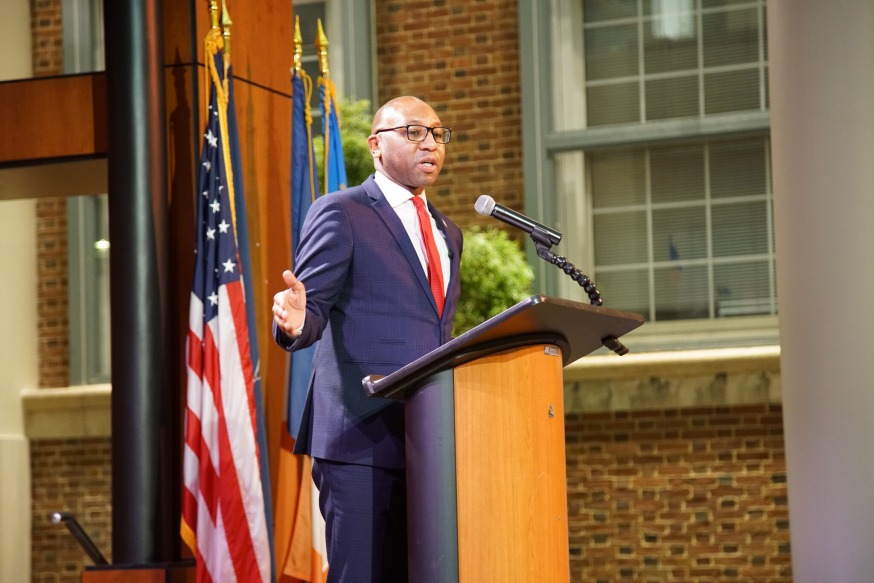
Queens Borough President Donovan Richards joined fellow borough presidents in asking the state to extend the eviction moratorium (Queens Borough President Office)
Jan. 10, 2022 By Allie Griffin
Queens Borough President Donovan Richards joined three other borough presidents in a joint call Friday demanding the state and state legislature extend the eviction moratorium.
Richards together with Manhattan Borough President Mark Levine, Bronx Borough President Vanessa Gibson and Brooklyn Borough President Antonio Reynoso issued a joint statement calling for the extension of the eviction moratorium beyond its Jan. 15 expiration.
They said New Yorkers must not be booted from their homes at a time when COVID numbers are surging. They also want an extension to the commercial eviction moratorium that also expires Jan. 15.
“The moratorium on residential and commercial evictions in New York State has become a lifeline for New Yorkers impacted by COVID-19, and an essential tool to help keep New Yorkers safe and housed during this pandemic,” the borough presidents said in a joint statement. “It must be extended.”
They noted that many of the active residential eviction cases are pending in communities of color — which have also been among the hardest hit neighborhoods by the pandemic. The areas are home to many “underpaid and underserved” frontline workers.
There are more than 200,000 active residential eviction cases currently open in NYC housing court — 17 percent of which are in Queens, according to the Manhattan Borough President’s office. The vast majority are open in eastern Queens, southeast Queens, upper Manhattan, the Bronx and central Brooklyn.

(Manhattan Borough President’s Office)
“We can expect that these communities will be the first to feel the negative repercussions of the expiration of this moratorium, and we cannot allow that to happen while COVID-19 case rates are at an all-time high,” they said in the joint statement.
The borough presidents cited data that shows many of the neighborhoods with a high number of pending eviction cases also have some of the highest COVID-19 case rates in the city.
They said preventing mass evictions is crucial to avoiding over-crowding in congregate shelters where COVID-19 can spread rapidly.
The state has extended the moratorium before.
Last year it was set to expire Aug. 31. However, both houses of the state legislature held extraordinary sessions and passed a bill extending it through Jan. 15. Gov. Kathy Hochul signed the legislation.
2 Comments

How come there is no moratorium on RE taxes? As a homeowner impacted by this pandemic I should be eligible to defer any and all RE tax since Renters do not have to pay rent.
Tenants are exempt from eviction, paying rent or having any responsibility because of the CovAids pandemic yet Landlords are not exempt from real estate taxes, utilities, and insurance. If one is exempt then the other should be as well since they are not receiving rent/income from the tenants.